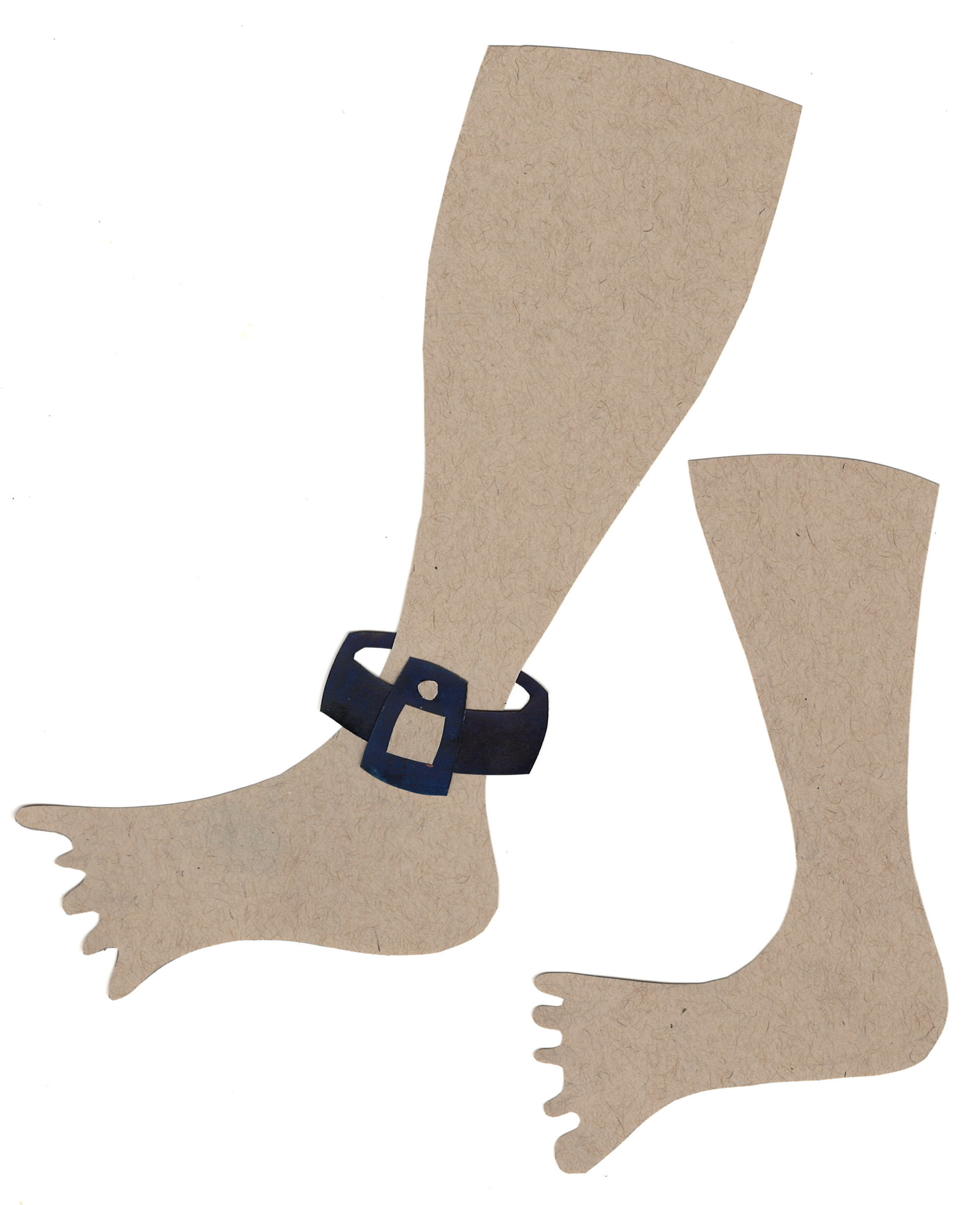As part of their attack on the Pretrial Fairness Act, Cook County Sheriff Tom Dart and other law enforcement figures have called for rolling back the right that people under pretrial electronic monitoring (EM) have to essential movement. While the reforms included in the Pretrial Fairness Act don’t address all the harms caused by the Sheriff’s EM program, they have significantly improved thousands of people’s lives. Rolling them back would put the lives of people on EM and their loved ones at risk.
EM is increasingly used for people who have been charged with, but not yet convicted of, a crime. EM places them under near-constant surveillance and confines them to their homes for long periods of time. In regard to EM, the key reform of the Pretrial Fairness Act was “essential movement,” which guaranteed that people on pretrial electronic monitoring can complete essential tasks outside their homes at least twice a week, such as grocery shopping, doing laundry or seeing a doctor. Before this, Dart had prevented thousands of people on electronic monitoring from engaging in these most basic acts of survival.
This reform has been a great success. In the past sixteen months, fewer than 200 people out of over 4,000 who have been on electronic monitoring have been rearrested during their essential movement time. Fewer than thirty of those rearrests were for gun-related charges. In short, thousands of people have benefitted from this reform.
We have been researching electronic monitoring for several years and coauthored a study on pretrial EM in jurisdictions across the country. Nearly every jurisdiction in the U.S. allows people extended periods of movement outside the house to complete basic survival activities. In this regard, Cook County has been an outlier—one of the few jurisdictions that implemented 24-hour house arrest.
Sheriff Tom Dart wants to return to that system. Last month, he filed legislation to repeal this reform. His call to roll back the reforms was echoed by the Chicago Sun-Times’ Editorial Board, which focused its case on a small number of rearrests. These attempts to repeal are part of a larger pattern where opponents of pretrial reform push misinformation to reverse the wheels of progress and justice.
Dart’s argument boils down to the claim that people on pretrial EM are likely to commit other crimes when allowed time outside the home. This contradicts existing research—studies show that people on electronic monitoring are no more likely to commit crimes or fail to show up for court appearances than those who are not on EM. Between 2016 and 2020, there were about 18,229 people in Chicago on EM. Over ninety percent of them were not rearrested, and fewer than four percent were arrested on felony charges.
Dart notes that a person can get permission for essential activities by going to court. While this is technically true, courts routinely ignore or seriously delay such requests. Moreover, why do we want judges and lawyers to spend their time deciding whether someone should go shopping for two hours?
The situation concerning medical and family emergencies is more serious. In the absence of a court order, a person on the monitor must make a horrible choice: either respond to the emergency and risk going back to jail, or do not respond, leaving someone to suffer serious health consequences due to lack of medical care.
The intensive movement restrictions, coupled with staying on EM for months, deny Chicagoans their right to due process, sometimes forcing them to accept a plea bargain even when they are not guilty. The Sun-Times calls it a “dangerous gamble” to give people essential movement, but we argue the gamble is denying them the basic freedoms they need in order to carry on with their lives and ensure due process through the court system.
In the world of electronic monitoring, Cook County has become notorious not only for stringent house arrest regimes, but for harassment. That includes phone calls in the middle of the night to check if people are home, unannounced house searches, and thousands of false alerts from devices which have been shown time and time again to be inaccurate. And as the Cook County’s Public Defender, Sharone Mitchell, Jr., stresses, these practices disproportionately impact Black Chicagoans, who comprise seventy percent of those on EM. He says that the excessive number of EM violations directed at Black people contribute to the “destruction of communities.”
Even the Illinois Department of Corrections has seen the light. Several years ago, they had similar restrictions to Cook County for those on EM. However, they changed their policy in 2019, giving everyone twelve hours per day of unrestricted movement. This has not resulted in any rash of violent crimes, but has instead provided individuals on EM with access to opportunities and the ability to carry out basic survival activities.
We urge Cook County Board President Toni Preckwinkle and the Board of Supervisors to pressure Sheriff Dart to end his fearmongering and support for draconian policies that will reverse the great progress the Pretrial Fairness Act has made in reducing the harm caused by electronic monitoring.
James Kilgore is a researcher and activist based in Urbana, Illinois where he has resided since paroling from prison in 2009. He is lead researcher in the Challenging E-Carceration project of MediaJustice. He has written five books, including the National Book Foundation award-winning Understanding Mass Incarceration. He has written widely on issues of mass incarceration and racial justice. In Urbana-Champaign he is the Director of Advocacy and Outreach for FirstFollowers Reentry Program.
Emmett Sanders is a critically impacted researcher, writer, and advocate. He has written widely on the issue of electronic monitoring both within and outside of his role as a Researcher for MediaJustice’s Unshackling Freedom and Challenging E-Carceration campaigns. He holds a Master of Public Affairs from the University of Texas, Rio Grande Valley.



